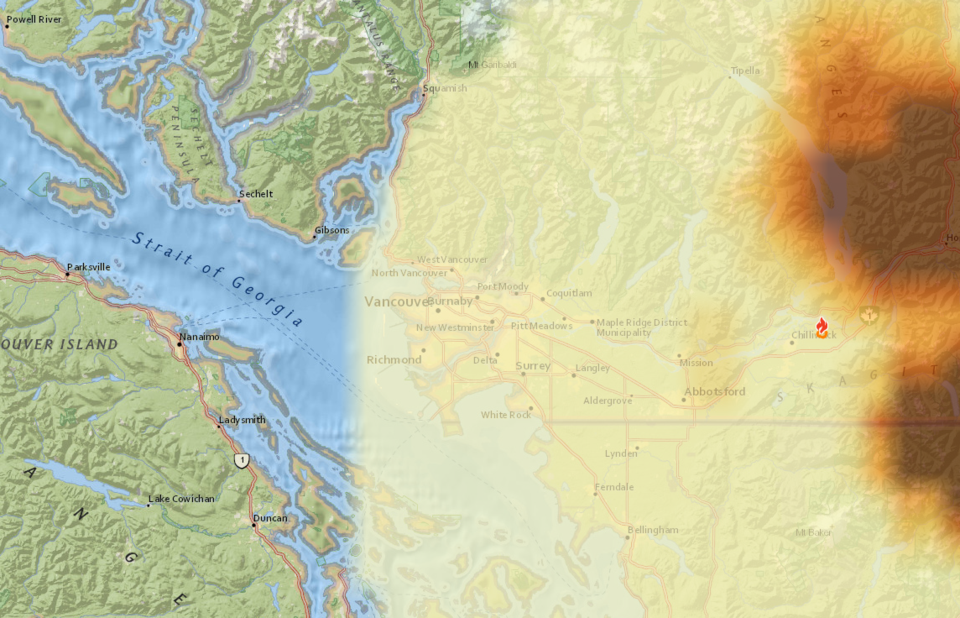Smoke cloud renderings from a national wildland fire weather and smoke forecaster show that Metro Vancouver will see the result of the province’s 245 active wildfires by Saturday morning.
FireSmoke Canada gives access to BlueSky Canada smoke forecasts, fire weather forecasts and other fire information. The forecasts are produced by the Weather Forecast Research team at the University of British Columbia with support from both the provincial and federal governments.
FireSmoke Canada’s current forecast shows a wall of smoke held at bay near Hope until midnight on July 30. Then in the early morning hours of Saturday, the clouds approach the Lower Mainland from the United States border until they quickly envelop Metro Vancouver and reach as far as Squamish by 9 a.m.
The Greater Vancouver area is forecast to have a particulate matter concentration of 10 PM 2.5 (particulate matter smaller than 2.5 micrometres).
Smoky air makes it harder for a person’s lungs to absorb oxygen; fine particulate matter can travel deep into the lungs and lead to inflammation and irritation. That’s particularly concerning for people with chronic lung illnesses like asthma and chronic obstructive pulmonary disease (COPD).
Poor air quality also poses elevated risks to anyone with heart disease or diabetes, as well as pregnant people, infants and children or older adults.
“Exposure to wildfire smoke and the virus that causes COVID-19 can result in both respiratory symptoms, such as a dry cough, sore throat, or difficulty breathing,” warns a press release from Emergency Management BC (EMBC)
EMBC recommends reducing your risk by:
- spending less time outside
- reducing outdoor physical activity
- keeping windows and doors closed
- buying a high-efficiency particulate air (HEPA) filtration system
- seeking respite in an air-conditioned vehicle or in public facilities like shopping malls, community centres, swimming pools or libraries
If you find yourself outside, masks also offer some protection from the smoke.
With files from Stefan Labbé



